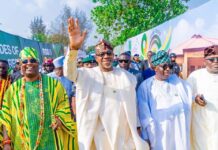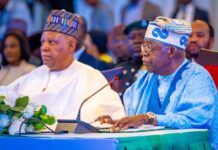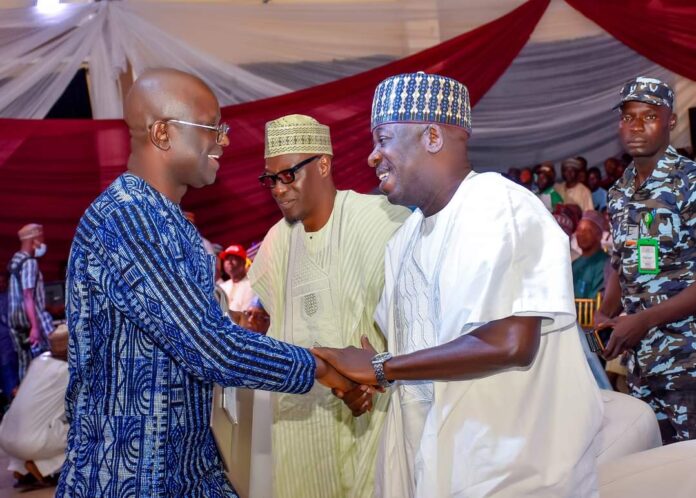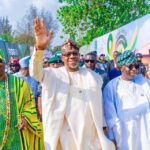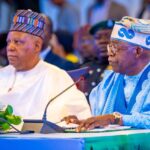I like the theme for this year’s International Youth Day which we mark today: ‘International Solidarity: Creating a World for all Ages’. It is very appropriate for this inaugural ‘Omoluabi Summit’ which has as its theme, ‘Character as Leadership’. Both character and leadership are for the young and the old. Meanwhile, ‘Omoluabi’ is a cultural construct of the Yoruba people which is used to describe a person who exhibits the right values or, if you like, good character. And we are here today because of one ‘Omoluabi’, my friend and brother, AbdulGaniyu Bolaji Abdullahi. For those who may not know, today is also Bolaji’s birthday, so congratulations are in order.
If there is any virtue we need in the Nigerian public space today, it is that of ‘Omoluabi’. We need such people in politics, in the economy, in the security forces, in the academia, in the media, on the civil society, etc. Put simply, we need the virtue in all areas of our national life.
To be an ‘Omoluabi’ takes courage. It’s about sacrificing convenience to uphold cherished principles. It’s about taking the right decision that could come at huge personal cost. It’s about exhibiting strong conviction even when we may lose friends in the process. It’s about thinking less of self and more about the collective. It’s about compassion for the less privileged of our society. It’s about loyalty to ideals regardless of the consequences. It’s about taking the lonely road that could harbor thorns. So, it’s effectively about the road less travelled.
We all know how Bolaji lost his job as Sports Minister just because he would not betray his benefactor. That is what ‘Omoluabis’ do. For those of us who are students of the Bible, we must have read the account of how the wife of Job goaded her husband to take a certain decision in a moment of distress. But as we also saw in that story, being an ‘Omoluabi’ ultimately pays, because that is the true measure of a man. Incidentally, I read it somewhere that the opposite of being an ‘Omoluabi’ is to be described as ‘Eeyan k’eyan’ – a caricature of a human being. A worthless person. A charlatan. I doubt if anybody here would want to be so characterized.
Being an ‘Omoluabi’ has nothing to do with the faith anybody professes. It is more about conduct of such individuals in their ‘Oro Siso’ which means that their words must be temperate and seasoned with wisdom; in ‘Iteriba’ which depicts humility and respect, especially for elders. I will qualify this because the Yoruba people also have an instructive adage: “Agbalagba ti ko bam o eran e l’obe, a nyoo fun ni.” That is deep but we can break it down to the fact that respect is reciprocal and every ‘Omoluabi’ also knows that. Other virtues include being an ‘Oloo’to’ (speaker of truth, not someone who tell lies all over the place) and being an ‘Akinkanju’ which presupposes that the person is diligent in whatever he or she is doing. These and few others are the distinguishing qualities which described an Omoluabi. They are the essence of his/her personality.
Before I take my seat, let me briefly highlight a few of them. Cultivating them will help many of our young people seated here today. Let’s begin with self-discipline which speaks to the inner strength that allows us to control our thoughts, actions, and reactions. This is what gives a person the power to abide by commitments made, even when doing so requires tremendous efforts and may not be convenient. It is self-discipline that allows us to push through challenges, fulfill responsibilities, and strive for excellence. It is also what earns one the virtue of integrity without which nobody can be said to have character.
The second issue I need to point out is diligence. One of the greatest character traits one should develop is the ability and inclination to work hard. As the common saying goes, the only place where success comes before work is in the dictionary. It is not only satisfying to be hardworking but also bolsters self-respect and self-worth without which nobody could be considered truly an ‘Omoluabi’.
Being an ‘Omoluabi’ also connotes being kind. This is an attribute that lifts both the giver and the receiver and breaks down barriers. While being kind doesn’t require any more effort than being selfish and inconsiderate, it helps to create a better society for all of us. Finally, an ‘Omoluabi’ is someone whose words are measured. As we all know, the tongue is a tool that can be used for great good or much evil but in the age in which we live, we can say the same of our fingers. So, let me tell our young people here today: What you post on social media reflects on your character.
Anytime I interact with young people, I always encourage them to step out into the real world from the virtual world in which most of them currently reside. That will also be my charge here today. Besides, if you misbehave in the virtual world, it will catch up with you in the real world. The sort of indiscretions that many other public officials were allowed to get away with in the past would not happen in your generation. You must therefore note that among those following you on social media are friends, enemies, and potential voters, especially for those of you who may, like Bolaji, want to join politics. Your relationship with these different audiences and individuals will be made or broken by their perception of your personality and character based on what they read or watch about you.
That imposes on you a responsibility to be careful in your online activities. Don’t post or forward anything that would make others to judge you as an ‘eeyan keeyan’. As Bolaji Abdullahi reminds us with his own career trajectory in both media and politics, being an ‘Omoluabi’ may come with certain inconveniences but ultimately it pays. That should be your aspiration as young people.
*Adeniyi is Chairman, THISDAY Editorial Board.








